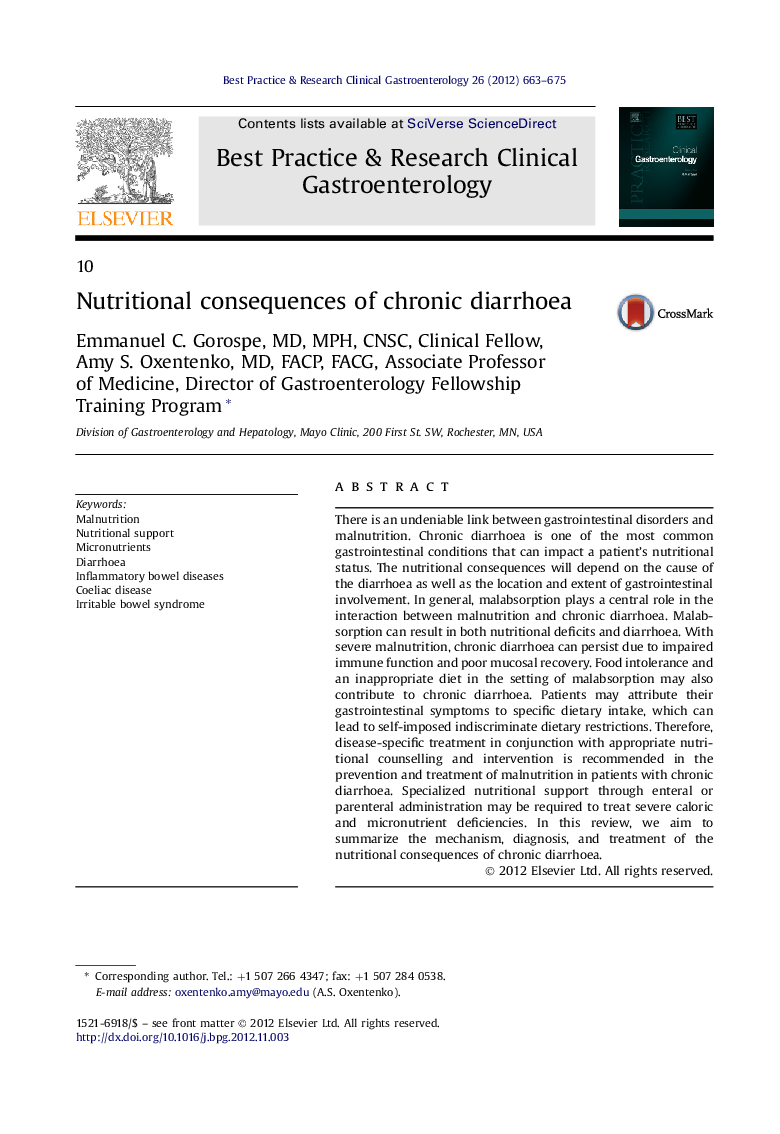| Article ID | Journal | Published Year | Pages | File Type |
|---|---|---|---|---|
| 3254545 | Best Practice & Research Clinical Gastroenterology | 2012 | 13 Pages |
There is an undeniable link between gastrointestinal disorders and malnutrition. Chronic diarrhoea is one of the most common gastrointestinal conditions that can impact a patient's nutritional status. The nutritional consequences will depend on the cause of the diarrhoea as well as the location and extent of gastrointestinal involvement. In general, malabsorption plays a central role in the interaction between malnutrition and chronic diarrhoea. Malabsorption can result in both nutritional deficits and diarrhoea. With severe malnutrition, chronic diarrhoea can persist due to impaired immune function and poor mucosal recovery. Food intolerance and an inappropriate diet in the setting of malabsorption may also contribute to chronic diarrhoea. Patients may attribute their gastrointestinal symptoms to specific dietary intake, which can lead to self-imposed indiscriminate dietary restrictions. Therefore, disease-specific treatment in conjunction with appropriate nutritional counselling and intervention is recommended in the prevention and treatment of malnutrition in patients with chronic diarrhoea. Specialized nutritional support through enteral or parenteral administration may be required to treat severe caloric and micronutrient deficiencies. In this review, we aim to summarize the mechanism, diagnosis, and treatment of the nutritional consequences of chronic diarrhoea.
